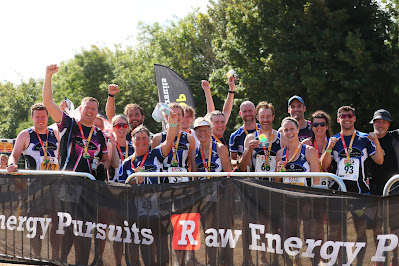 |
| Runners who entered a race and enjoyed themselves. Actual Scenes. |
Introduction
Since the return to events in 2021 we have seen more and more races get back and relaunch across the country. However, all was not as it seemed. Midway through 2022 and Race cancellations were still taking place, the number of people turning up on the day, despite entries being fuller, less people attending on the day itself. Covid hasn't fully gone away, and my running friends were reporting long term exhaustion and breathlessness and not returning to running. And we thought - what is going on ? Where is everybody ? and me being be, I thought - why don't we ask people ? So here we are.
Other recent reports have tried to look at the same problem - one of the event booking companies noted that bookings were down https://www.linkedin.com/feed/update/urn:li:activity:6937334235133325312/ - but then gave some of their own ideas about why people were not entering - but not derived from any actual evidence. (ie forgetting that people had to pay for petrol at £1.96 per litre to get to many parkrun's which is not free to drive to - so they are influenced by the cost of living, they can't be written off as totally free events as they did in their analysis. Plus of course there's always the price of a coffee and kayke afterwards...)
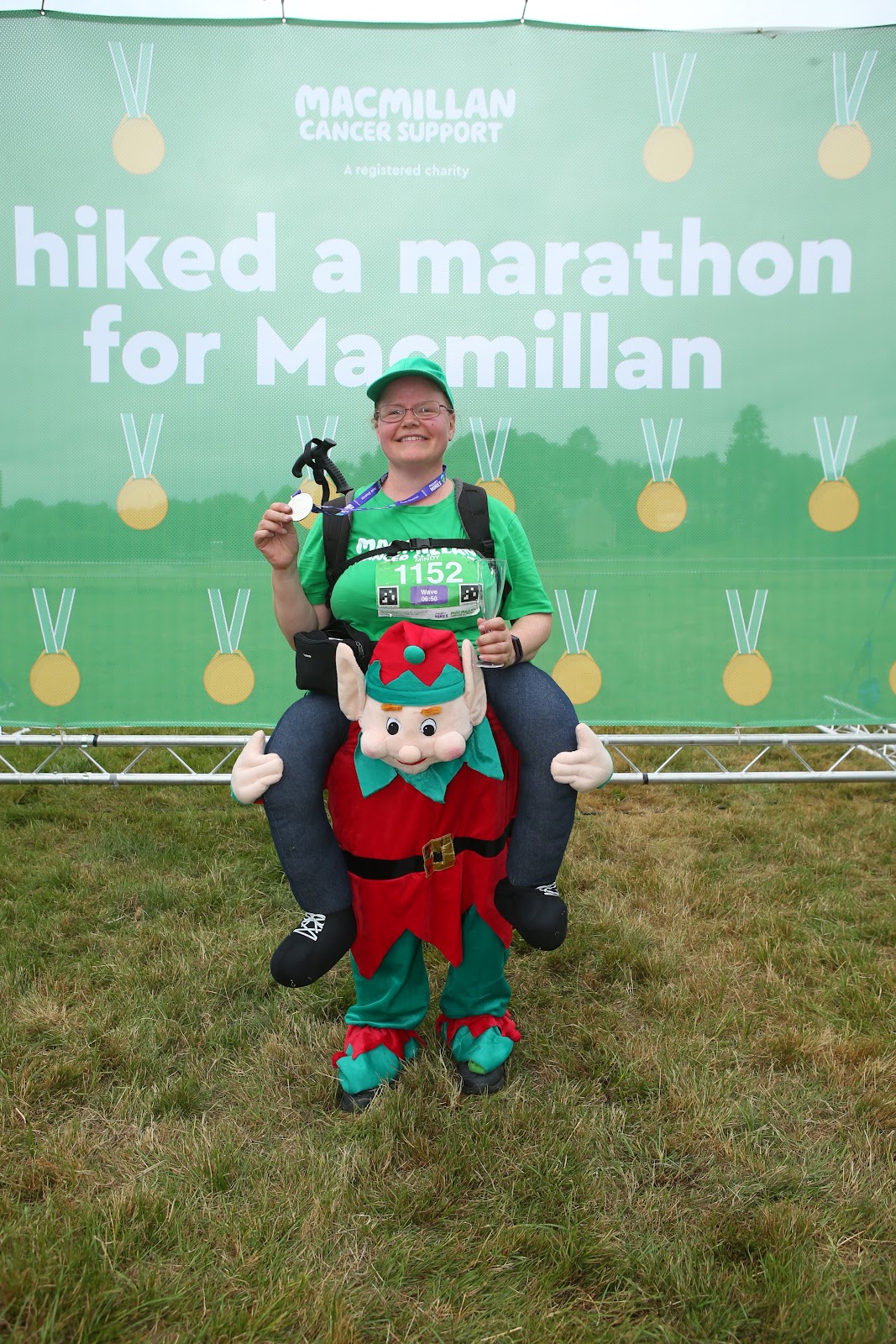 |
| Just take part. Your friends can do the heavy lifting |
Another discussion (here: https://headstart.buzzsprout.com/1757785/10624550-market-update-are-we-there-yet ) didn't satisfy my curiosity, so I thought - I'd better ask people - and find out what they really thought. So I did this survey in the last bit of May 2022.
The design of any good questionnaire establishes who is answering it, clear questions with yes and no answers which are the same sort of questions to cross check that people are interpreting them in the same way, and then a range of closed questions (With limited responses), and then a set of open questions with free text responses. This crosschecks different question interpretations and helps get a consistent analysis of the results.
Whilst the absolute answers themselves make for interesting and easy understanding, the interesting part of the analysis starts when you start to look at two questions put together - ie: are you motivated, and what sort of runner are you ? (to answer if club runner are more motivated than individual runners), or - have you had covid and what distances do you prefer to race now ? (ie if you've been ill are you running shorter distances?) These all start to produce interesting insights which when looked at broadly - will start to give the events some direction on what to do next for their potential entrants and future customer base.
So with one final point - all this is my days of hard work and data analysis, so if you're going to use it - please refer back or quote to us as the original source. use this link if you like : https://sspimg.com/2022-participant-survey or contact me, Anthony, on info@sussexsportphotography.com - I'd love to hear from you and your ideas !
The detail of the results
So first off, lets establish who is answering this survey:
About 75% (Three quarters) of you like to run up to a half marathon, with a third sticking under the 10k limit, and about a quarter in total enjoying running marathons and longer. Notably Half Marathons are the most popular distance.
A staggering 50% of you have had covid, and of that 14% of the entire survey population (or 28% of those who have had covid) - have not recovered.
This is the first big bit of data from the survey - 14% of you couldn't enter a race if you wanted to. Take that bit of news event organisers and set your expectations accordingly. The market is 14% smaller - at best.
 |
| So - who is entering races exactly now ? |
Let's start crossing over the questions then...
So are you more likely to have had covid depending on what kind of runner you are ?
Yes ! is the answer - 45% of club runners have had Covid, whilst 56% of individual runners have had Covid. In probability terms - that means that Individual Runners are 24% more likely to have had it than the club runners. I'm not sure if that's counter-intuitive - but that's the data !
Note though - Club Runners have not recovered as well - with 33% of Club runners who caught it still not 100% whilst individual runners are down to 23% who had covid still not 100%. Does that mean club runners are closer to the edge on their overall fitness and their self perception is more critical ? I don't know.
Put that in the overall context of the running population - if club runners are half your entries, but they are taking longer to get better from Covid - then they are going to need more help to get back into running.
So why didn't you race when you had entered ?
I did a load of questions about have you entered but not raced, but honestly it wasn't very interesting in the general response - but 80% had raced already this year by May 2022
Asking people if and why they didn't attend races if they had entered them - given the first four options of Health, Fitness, Life and Motivation does cover 2/3rds of the survey - but the mistake I made here was giving people a free "other" choice. All of the other responses given could have been put into those four categories - ie Injuries would happily fit into the "health" or "fitness" bucket quite easily. Anyway the main takeaway is that some 40% of overall survey responses hadn't turned up to a race this year, but very little of that was down to motivation. What motivation is required is to get people to enter in the first place.
Planning ahead ?
So at this point I'm wondering if people are behaving the same in everyday normal life with their planning for entering events - and it turns out - they're not - 35% of people are not planning their lives as far ahead as they used to.
That's a third of people waiting for a bit more certainty and stability - and this seems to make sense as half of the reasons given for not turning up to a race you had booked - would fall into a category related to "Life gets in the way".
What are you waiting for ?
so we cross check the not planning ahead answer with this inevitable question - so what are you waiting for ?
Pay attention here - because people - on a pretty straight question are saying - 45% "the right sort of event", and 18% are saying they want more certainty before booking. Importantly - and when we cross check this with two different questions later - only 8% say directly that finance/cost ie Entry Fees themselves are an issue - some of our later analysis explains cost isn't the financial problem.
The problem with the main 45% answer is we don't know if "the right sort of event" actually means something linked to an event with entry flexibility and refunds, the costs, or distance or terrain or local. It means too much - but it does give us something to consider - ie Runners are a fussy lot and 45% are not satisfied with the status quo. If you're into race innovation as a race director and business improvement - then this is your starting gun... almost half of your potential customers want a better/different sort of event with better/different financial conditions.
What's the motivation?
So I thought - hang on is this just a motivation thing ?
well, I guess it might be - because over a third of you are not as motivated to enter a race as you were before lockdown. Are the third who are unmotivated the same third who are booking things later - NO !! never fall into that trap of assumptions just because the numbers look the same. there's some overlap, but they're not all the same people.
Instead lets see if race distance has an impact on motivation - it turns out it does
The shorter your normal running race distance - the less motivated you appear to be, and intuitively this makes sense too - somewhat logically - it seems the further you run and race the more motivated you are to get back out there to run and race. Basically people who like to run further are more motivated to run than people who don't like to run further.
So what about having Covid - does that demotivate you ?
No, it turns out that on average, having covid and recovering is very similar to not having had covid in the motivational stakes. However - Not recovering 100% - that appears to be quite demotivating (as you might expect).
But - ah - that's the average - what about if you're a Club runner ? (this is half our survey remember).
Overall that would feel like you're ~50% more demotivated by having Covid - compared to your Club Running buddies who have not (because 47% is relatively speaking 50% larger than 33%). That's a big hit of demotivation.
And - so how does this work for individual runners (not club runners) - has Covid hit their motivation hard too ?
Be warned though - if you're an individual runner, and still haven't recovered from covid - half of you are likely to be demotivated. Is this evidence that being part of a club can help motivate you through the hard times ? Might be. And might be worth considering joining a club if you haven't quite recovered from covid but need some get-up-and-go to help you.
Again the "not-had-it" crew are 33% demotivated - so that's my benchmark for the impact of lockdown - for all runners.
Summary findings so far
So far then - of the runners who are entering races - we have 35% planning their entries later than before, and 33% not motivated to enter races, and club runners who have had Covid are likely to be even more demotivated.
This table should show you the overall situation quite well:
 |
| Motivation and entering races on time |
From the table you can see that only 41% of all previous runners think they are behaving the same way they used to. That's 59% of runners making things harder for event organisers to fill their events and generate cashflow. - and remember of that remaining 59% - 14% of them have covid and are ill so they are not back to running races.
NB: The slight discrimination in percentages discussed and the table above depends if we are talking about all runners, or a percentage of runners who are back to running and healthy.
Why the demotivation Marvin?
You can run, but you're not entering races. Why is this ?
Why are 33% who are active, fit and running (ie not currently ill) - not motivated ?
It appears that 57% of people who could be entering are saying that lifestyle of time and planning is stopping them from entering races.
So "general certainty" for 26% and "waiting for the right sort of event" - 63% of active runners makes up the reasons for these runners.
So what is the right sort of event ?
It appears that for 81% of runners now the right sort of event is any distance up to a Half Marathon - which is split almost 50-50 with 10ks.
And of all these potential runners, despite all saying lifestyle is stopping them, when asked the open question of what advice did they have for Race Directors - and in the longform answers - we found that 50% advised that cost factors needed fixing. So is it really lifestyle and the right sort of event ? The bulk of the cost related factors included prices, refunds, and deferring or transferring entries. More about this in a moment.
So overall we have runners who are a mixture of not motivated, less interested and entering later. It's a combination of all three - there's a venn diagram of overlapping problems - so I went through their responses to the "If you were a race organiser, what one thing would you be doing to encourage race entries ?" - and it's 45% of the respondents that fall into this pool saying "its not the right sort of event". (note for race directors - That's almost half of your potential entries - check that again: almost half your potential income).
This is roughly how their answers work out (NB they could and did write across a range of topics) as to why it's not the right sort of event for them:
 |
| What motivates people to run in a race ? |
People are reverting to 10ks and half marathons - not so much marathons - as was the momentum into 2020, and from what we're seeing this season - people are turning up for positive good causes, and not so much for themselves if they're a little bit out of form - especially the club runners.
What is needed is easy - really easy - entry swaps - up to and including until the event is over on the day of the event, before the final results are issued.
 |
| None of this is a mystery if you think about it |
Then people can enter knowing that their entry fee won't go to waste - they can sell, swap, pass on, encourage, and support the races going ahead and it's completely up to them how to do that. A friend might be able to give them the money for it, or a club might be able to share the entry and someone else on the day pick it up. As long as they register the swap officially whilst results are still provisional then it enables a more flexible approach to race entries for everyone.
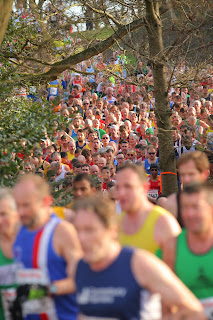 |
| lots of people enjoying a run - all club runners ! |
I could go on, but I think you get the picture - Event and race organising isn't easy, and at the moment - going out to run with people at events just isn't happening as much as it used to. By a lot.











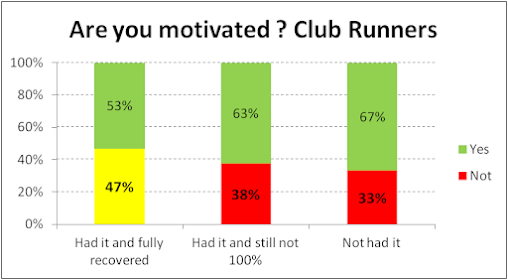




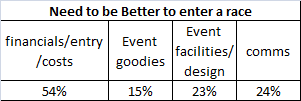




No comments:
Post a Comment